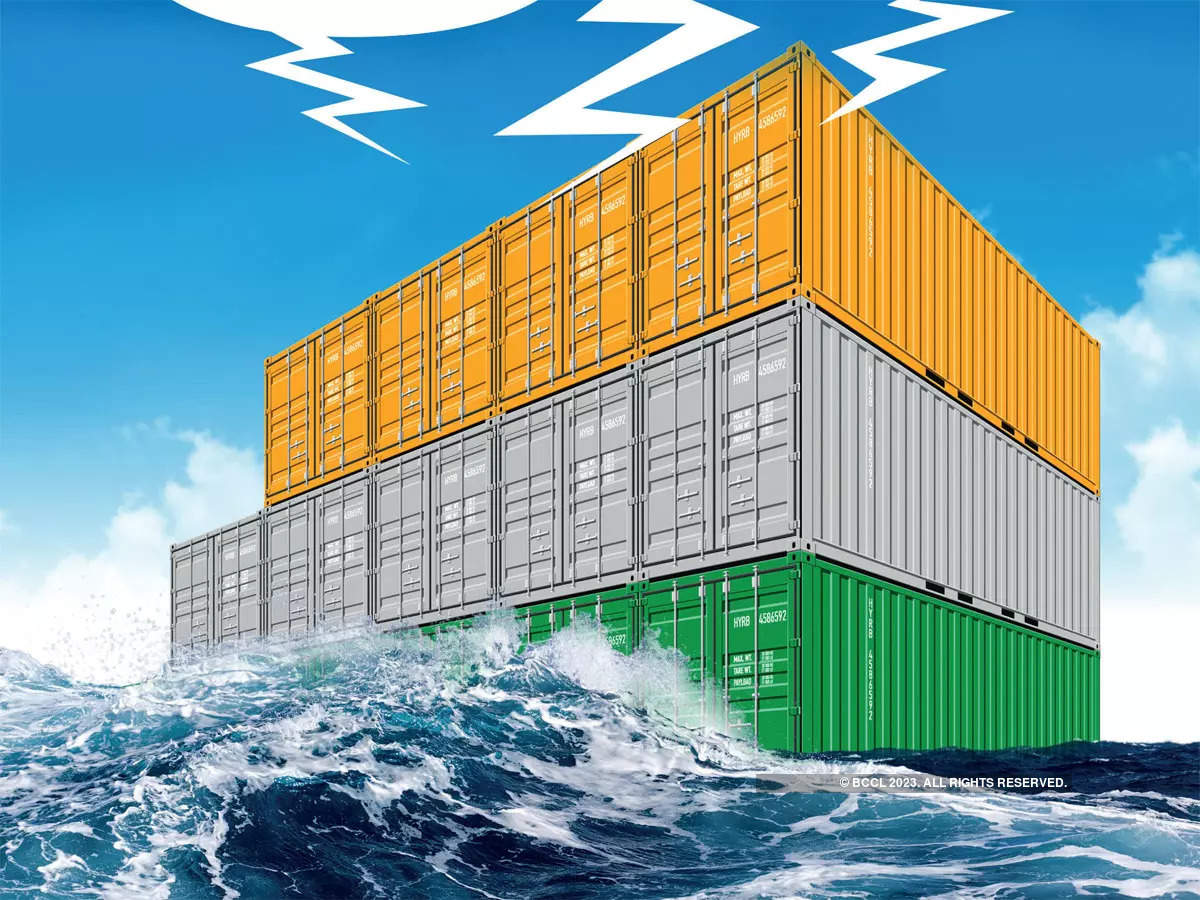
Red Sea crisis hit India’s trade : Container Shipping line MSC and CMA CGM suspend key routes
CAPETOWN : Mediterranean Shipping Company S.A, the world’s largest container shipping line, has suspended two services from India, one destined for the U.S. and the other for the Mediterranean. Concurrently, French carrier CMA CGM has blanked four sailings on three services from India in January. This disruption is attributed to the longer detour taken by ships via the Cape of Good Hope to avoid attacks by Houthi militants in the Red Sea, impacting reliability and necessitating a realignment in services.
The surge in freight rates since December, when Iran-backed Houthi rebels began attacking commercial ships in the Red Sea in response to Israel’s actions in Gaza, has prompted these changes. Rerouting vessels via South Africa’s Cape of Good Hope results in longer transit times, ranging from 7-8 days to Europe and 10-13 days to the U.S., leading to increased fuel usage. Carriers are announcing general rate increases and surcharges to offset these extra costs.
Container shipping rates have “more than doubled” since the Red Sea attacks, according to an executive from a European shipping line. Geneva-based MSC has suspended the IMED Service (India to East Mediterranean) and the Indus A service, merging the latter with the Indus service to the U.S. The decision to circumvent the Cape of Good Hope has prompted MSC to allocate additional ships to its other U.S. and Mediterranean-bound services.
CMA-CGM, based in Marseille and the world’s third-largest container line, has also faced challenges, necessitating the blanking of four sailings from India in January. Longer detours and increased transit times have led to the need for at least two extra vessels in every shipping loop.
The Red Sea crisis compounds existing challenges in the container shipping industry, which saw rates collapse after pandemic-induced disruptions. The industry faces overcapacity due to the record orders for new ships funded by pandemic profits. Service suspensions and blank sailings are expected to impact India’s exporters, particularly during the pre-Chinese New Year rush. With India’s exports peaking in the January-March quarter, the situation may lead to increased demand and pressure on the East-West trade routes. Additionally, the upcoming pre-Ramadan rush in March is anticipated to add further strain to the demand, affecting cargo capacity and asset distribution.
